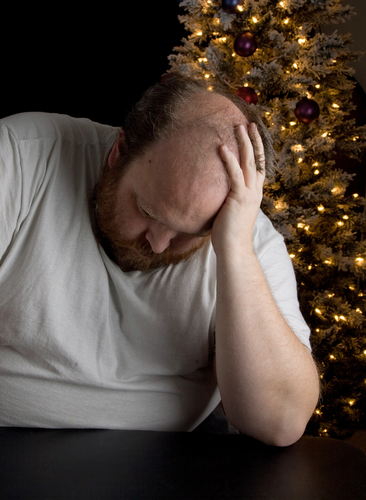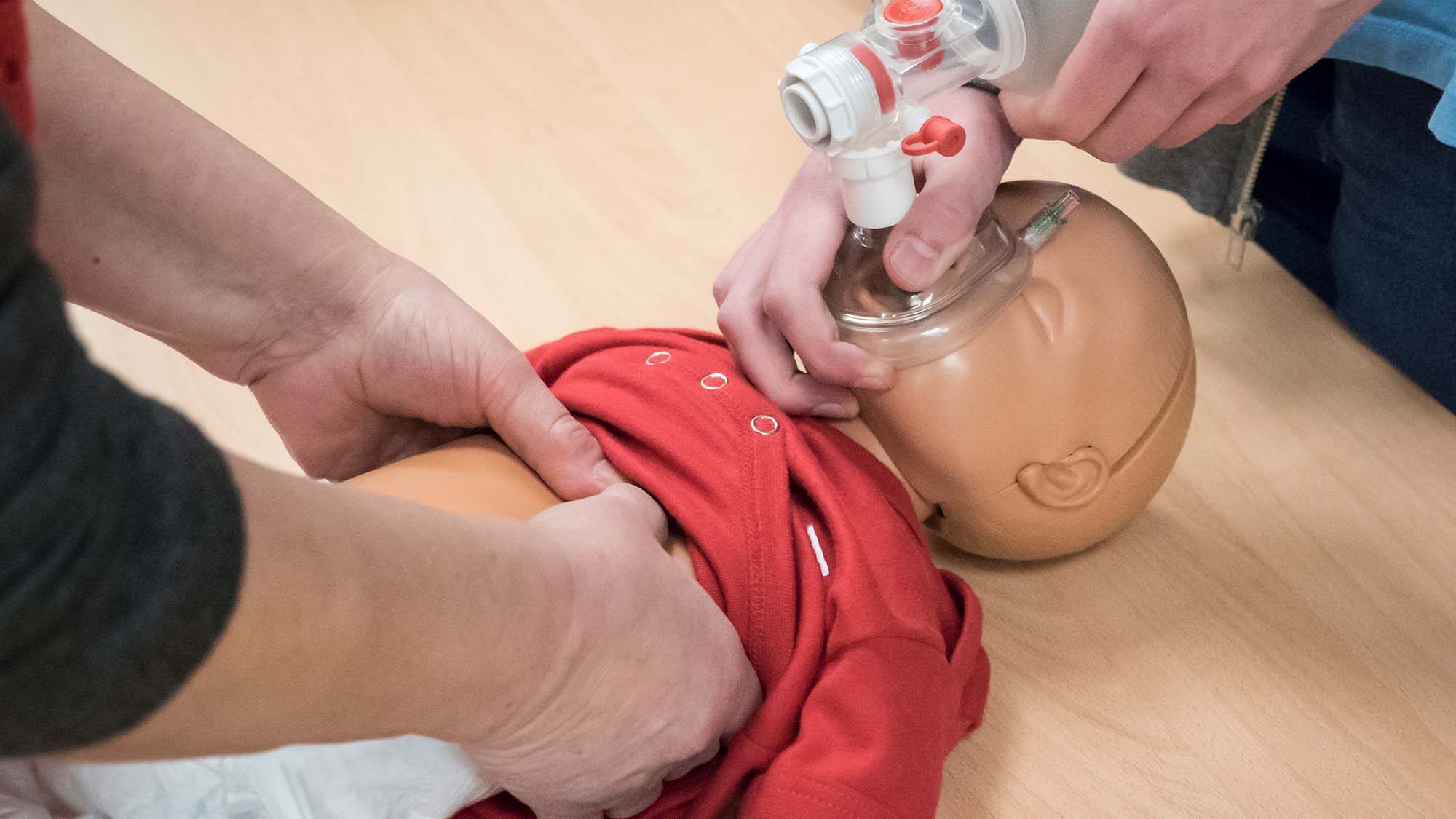TOPICS : When holidays bring more than good cheer
Holiday Weight Loss Tips – Spoil Your Supper!
By Sharon Liao
 The holidays are supposed to be the most wonderful time of the year, but for many weight-conscious women, they’re anything but merry. That’s because they spend the five weeks between Thanksgiving and New Year’s navigating a dietary minefield, dodging festive yet fattening foods, like sugar cookies, pecan pie, and buttery mashed potatoes.
The holidays are supposed to be the most wonderful time of the year, but for many weight-conscious women, they’re anything but merry. That’s because they spend the five weeks between Thanksgiving and New Year’s navigating a dietary minefield, dodging festive yet fattening foods, like sugar cookies, pecan pie, and buttery mashed potatoes.
”But depriving yourself will only leave you feeling frustrated,” says Sharon Richter, R.D., a dietitian in New York City. “Eventually you’ll give in, and that one taste of stuffing will lead to a second or third helping.”
In fact, a recent study in the journal Appetite found that women who followed strict diets were more vulnerable to temptation—and weight gain—than those who indulged on occasion. So this year, we’re suggesting a novel new mind-set that will benefit your waistline and sanity: Eat the foods you love.
The trick, of course, is to indulge in moderation. Follow these simple rules for shoring up your willpower and curbing your appetite and you’ll be able to relax and truly enjoy yourself at those seasonal soirées—and develop habits you can use all year long.
Starting with “Spoil your Supper” . . . See some unusual tips here.
REALLY?
The Claim: Drinking Water Before Meals Aids Weight Loss
By ANAHAD O’CONNOR





Dieters have been encouraged to employ this trick for ages, with the reasoning quite simple: the water fills the stomach, thus reducing hunger. But only in recent years have studies borne this out.
In the most recent, a randomized trial published in the journal Obesity in February, scientists at Virginia Tech followed a group of overweight subjects age 55 and up on low-calorie diets for about three months. Half the people were told to drink two cups of water before every meal. At the end of the study, the water group had lost an average of 15.5 pounds, compared with 11 pounds in the other group.
A 2008 study showed a similar effect, finding a 13 percent reduction in calorie intake in overweight subjects who consumed water before breakfast. But a third study, this one in 2007, had a peculiar finding: drinking water 30 minutes before a meal reduced calorie intake and feelings of hunger in older adults, but had little effect on subjects under 35. It’s not clear why, but the researchers pointed out that because older adults are at increased risk of being overweight and obese, further studies should determine whether this is effective for the aging population.
Studies show the average person gains about a pound between Thanksgiving and January. Most adults gain one to two pounds a year over a lifetime, so staving off the holiday pound can go a long way.
THE BOTTOM LINE Drinking water before a meal can reduce calorie intake, though the effect seems most prominent in older people. Read the entire article here.
Stress, depression and the holidays: Tips for coping
Stress and depression can ruin your holidays and hurt your health. Being realistic, planning ahead and seeking support can help ward off stress and depression.
By Mayo Clinic staff


But with some practical tips, you can minimize the stress that accompanies the holidays. You may even end up enjoying the holidays more than you thought you would.
When stress is at its peak, it’s hard to stop and regroup. Try to prevent stress and depression in the first place, especially if the holidays have taken an emotional toll on you in the past.
- Acknowledge your feelings. If someone close to you has recently died or you can’t be with loved ones, realize that it’s normal to feel sadness and grief. It’s OK to take time to cry or express your feelings. You can’t force yourself to be happy just because it’s the holiday season.
- Reach out. If you feel lonely or isolated, seek out community, religious or other social events. They can offer support and companionship. Volunteering your time to help others also is a good way to lift your spirits and broaden your friendships.
- Be realistic. The holidays don’t have to be perfect or just like last year. As families change and grow, traditions and rituals often change as well. Choose a few to hold on to, and be open to creating new ones. For example, if your adult children can’t come to your house, find new ways to celebrate together, such as sharing pictures, emails or videos.
- Set aside differences. Try to accept family members and friends as they are, even if they don’t live up to all of your expectations. Set aside grievances until a more appropriate time for discussion. And be understanding if others get upset or distressed when something goes awry. Chances are they’re feeling the effects of holiday stress and depression, too.
- Stick to a budget. Before you go gift and food shopping, decide how much money you can afford to spend. Then stick to your budget. Don’t try to buy happiness with an avalanche of gifts. Try these alternatives: Donate to a charity in someone’s name, give homemade gifts or start a family gift exchange.
- Plan ahead. Set aside specific days for shopping, baking, visiting friends and other activities. Plan your menus and then make your shopping list. That’ll help prevent last-minute scrambling to buy forgotten ingredients. And make sure to line up help for party prep and cleanup.
- Learn to say no. Saying yes when you should say no can leave you feeling resentful and overwhelmed. Friends and colleagues will understand if you can’t participate in every project or activity. If it’s not possible to say no when your boss asks you to work overtime, try to remove something else from your agenda to make up for the lost time.
- Don’t abandon healthy habits. Don’t let the holidays become a free-for-all. Overindulgence only adds to your stress and guilt. Have a healthy snack before holiday parties so that you don’t go overboard on sweets, cheese or drinks. Continue to get plenty of sleep and physical activity.
- Take a breather. Make some time for yourself. Spending just 15 minutes alone, without distractions, may refresh you enough to handle everything you need to do. Take a walk at night and stargaze. Listen to soothing music. Find something that reduces stress by clearing your mind, slowing your breathing and restoring inner calm.
- Seek professional help if you need it. Despite your best efforts, you may find yourself feeling persistently sad or anxious, plagued by physical complaints, unable to sleep, irritable and hopeless, and unable to face routine chores. If these feelings last for a while, talk to your doctor or a mental health professional.
KEEP ON LAUGHING!


1. Laughing 100 times roughly equals 15 minutes on an exercise bike? Vigorous laughter increases the heart rate deepens the breathing rate, and uses muscles in the face, stomach, and diaphragm.
2. Aside from improving our moods, laughter can reduce stress, help fight infection, and reduce pain.
3. The levels of two stress hormones, cortisol and epinephrine which suppress the body’s immune system, will actually drop after a dose of laughter.
4. Laughter causes positive changes in brain chemistry by releasing endorphins, and it brings more oxygen into the body with the deeper inhalations.
5. Laughter releases anger, fear, guilt, anxiety and tension.
6. Laughter encourages concentration on “right” attitudes rather than “wrong” attitudes.
7. Higher levels of an antibody (salivary immunoglobulin A) that fights infectious organisms entering the respiratory tract were found in the saliva of people who watched humorous videos or experienced good moods.
8. Researchers found after watching an hour-long video of slapstick comedy that the “natural killer cells,” which seek out and destroy malignant cells, more actively attacked tumor cells in test tubes. And these effects lasted up to 12 hours.
9. The 1998 movie Patch Adams told the real-life story of a nonconformist doctor convinced that fun, play, and clowns are important in improving patients’ quality of life in a grim hospital atmosphere.
10. Planning enjoyable activities for the future will reduce the stressor hormones such as cortisol and epinephrine.
Coping with too much holiday cheer
How to handle those party guests who overdo the liquid celebration during the holidays
Jen Weigel


“A lot of people are disappointed as the holidays approach because they realize this isn’t going to be the opportunity they had hoped for mutual support, recognition and affection from their families or friends,” said Dr. David Sack, president and CEO of Elements Behavioral Health, which oversees several addiction treatment programs around the country, including Promises Treatment Centers in Malibu and Los Angeles.
Sack said there is a direct link between alcohol abuse and hopelessness, which has increased with the recent economic instability.
“I think we’re seeing a cumulative affect of the stress of the recession and the high unemployment rate — that it’s starting to push upward in terms of who comes in to treatment,” Sack said. “You have people who have been out of work two years and three years, so there’s not much to look forward to for the holidays.”
Mark Pfeffer, director of the Panic/Anxiety Recovery Center in Chicago, said many of us put added pressure on ourselves during the holidays in the hope that if all goes well, it will undo all the bad memories of our past. This, he said, can lead to self-medication with alcohol, food or even shopping.
“Think about the symphony of emotions that people bring to the event ranging anywhere from anxiety about seeing people you haven’t seen in a while to sad memories sometimes associated with the holidays,” Pfeffer said. “So they’re coming to these events probably in a mode of doing things to an excess. People go into the holidays probably in a very vulnerable state. So you have to be prepared for the worst, especially with those (guests) who are usually a problem.”
Here are some tips to surviving holiday gatherings when overindulgence reigns supreme: (See the full article for funny expounding on this list)
- Pick your battles.
- Have a plan.
- Create boundaries.
- Don’t ignore the problem.
- Don’t serve alcohol.









